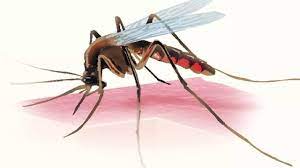Decline In Kala-Azar Cases In India:

There has been a 98.7 per cent decline in cases of Kala-azar from 44,533 in 2007 to 834 in 2022 in India
- India is committed to eliminating Kalaa-Azar from the country by 2023
- Eliminationis defined as reducing the annual incidence of Kala Azar (KA) to less than 1 case per 10,000 people at the sub-district level.
Kala-azar:
- Visceral leishmaniasis (VL), also known as kala-azar, is the most severe form of leishmaniasis and, without proper diagnosis and treatment, is associated with high fatality.
- It is also a neglected tropical disease (NTD)
- Caused by protozoan parasites of the Leishmania genus (transmitted through the bite of Sand flies), migrates to the internal organs such as the liver, spleen (hence “visceral”), and bone marrow.
- Signs and symptomsinclude fever, weight loss, fatigue, anaemia, and substantial swelling of the liver and spleen.
- Kala-azar is considered the second deadliest parasitic killer in the world after Malaria
- Kala-azar is endemic to the Indian subcontinentin 119 districts in four countries (Bangladesh, Bhutan, India and Nepal)
- It is endemic to four states Bihar, Uttar Pradesh, Jharkhand and West Bengal
- It is a treatable disease with anti-leishmanial medicines




